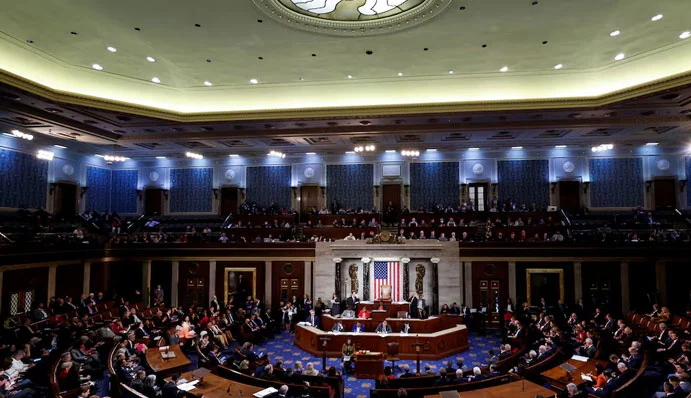President Donald Trump and Republican lawmakers in the United States have moved forward with a new plan to reduce government spending by approving a controversial $9 billion cut. The cuts will affect foreign aid, public broadcasting, and several humanitarian programs. The vote took place in the early hours of Friday, with the Republican-controlled House of Representatives passing the bill by a narrow margin of 216 to 213.
The funding slash is part of Trump’s broader goal to reduce government spending, a major campaign promise. House Speaker Mike Johnson said the move shows Republicans are serious about cutting waste. “President Trump and House Republicans promised fiscal responsibility and government efficiency,” he said. “Today, we’re once again delivering on that promise.”
The bill is now heading to the White House for the president’s signature. Trump celebrated the win on his social media platform, Truth Social, saying, “REPUBLICANS HAVE TRIED DOING THIS FOR 40 YEARS, AND FAILED… BUT NO MORE. THIS IS BIG!!!”
The cuts include funds meant for foreign countries dealing with health crises, conflicts, and natural disasters. Notably, $1.1 billion from the Corporation for Public Broadcasting (CPB) will be removed over the next two years. This funding supports over 1,500 local public radio and TV stations, including NPR and PBS, which conservatives often accuse of biased reporting.
The bill originally planned to slash $400 million from a global AIDS relief program, credited with saving 26 million lives. However, that portion of the cut was removed after moderate Republicans resisted it.
The decision has drawn sharp criticism from Democrats, civil society groups, and media professionals. House Minority Leader Hakeem Jeffries, along with other top Democrats, called it a “dark day” and accused Republicans of being reckless. “Instead of protecting the health, safety, and well-being of the American people, House Republicans have once again rubber-stamped Donald Trump’s extreme, reckless rescissions legislation,” Jeffries said in a statement.
The cuts are tied to a broader Republican campaign to reduce the federal budget, which includes the so-called Department of Government Efficiency (DOGE). The initiative was originally led by billionaire Elon Musk, who was once a close Trump ally but stepped away from his role earlier this year after internal disagreements. Musk had promised to find $1 trillion in annual savings, but these latest cuts represent just a small fraction of that goal.
Despite the Republicans’ focus on spending cuts, critics have pointed out that the party recently passed a domestic policy bill expected to add more than $3 trillion to U.S. national debt.
Senate Minority Leader Chuck Schumer said the move to defund public broadcasting could harm vulnerable communities, especially during emergencies. “It’s a dark day for any American who relies on public broadcasting during floods, hurricanes, tornadoes, and other disasters,” he said.
The rescinded funds had already been approved by Congress, leading Democrats to warn that this tactic could undermine future bipartisan budget deals. Some even fear that this vote could set the stage for more budget showdowns in the months ahead. Democrats have leverage in future budget discussions, as any new spending plan will require at least 60 votes in the Senate — and Republicans hold only 53 seats.
The cuts have also raised the risk of a possible government shutdown later in the year. Democrats say they may no longer cooperate on budget talks if the rescission strategy continues. “Tonight’s vote… makes it clear that House Republicans are determined to march this country toward a painful government shutdown later this year,” Jeffries and other Democrats warned.
White House budget chief Russell Vought said during a Thursday event that the administration is likely to send another rescissions package to Congress soon. This suggests that more spending cuts could be on the way, deepening the political divide in Washington.
